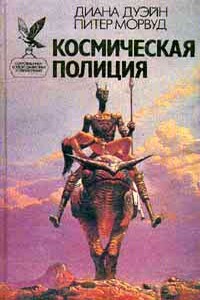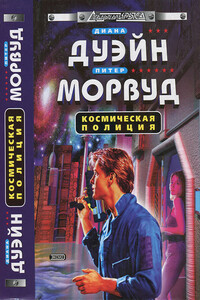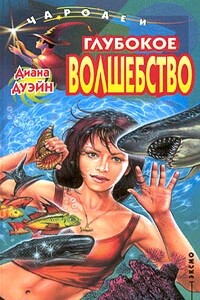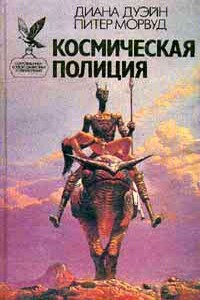around at where the sea of radiant eyes had surrounded them. "But I must say the effect was most impressive … "
Rhiow breathed out in immense relief. Her ears were ringing so badly that she could hardly hear: she and her team would be near-deaf for a day or so, she thought. But we got away easy, Rhiow thought sadly, looking down at Huff's body.
"Look at this mess!" Fhrio said, or shouted, as he came along to join her, slowly, with Urruah behind him. "What in the world are the ehhif going to make of this?" For a huge scoop of tunnel and brick and earth had simply been blasted out of the whole area.
"They'll probably think it's some kind of terrorist bomb or something," Rhiow said, looking around her at the destruction, the torn-up track and tangled jutting rods of reinforcement metal sticking out of the concrete. She sighed wearily and looked down at Huff again. "And what will we do with him?"
"I can bring him somewhere where that body may lie easy," Ith said. "Auhlae … " He looked around. "There is no trace. She will have surrended herself willingly … "
"Yes," Rhiow said. "Though by the Queen's mercy, who knows where her soul may be? She and Huff might yet be together sometime, somewhere … And he saved us." She looked one more time, sadly, at his body, as Ith picked it up.
"And that worked, too," Urruah said, looking at the icosahedron. "Nice job."
"The time was right. The place was right. The rest of it – " Ith shrugged. "A spell always works … "
"Come on," Rhiow said. "Fhrio, let's check your gates … and then go home."
It was some hours before that happened. The London team was going to need restructuring: Fhrio agreed readily enough, as its de facto team leader, that Rhiow and her team would come in occasionally to assist until new placements were arranged by the Powers. "I think it would have to be that way anyway," he said, glancing over at Arhu and Siffha'h. "I don't think they're going to be apart much for a while
к
"No, I think they've got some exploring of roles to do," Rhiow said. "Meanwhile, we'll have your 'bad' gate up and running again within a couple of days. But before we go … there's one more thing we have to do."
Fhrio actually put his whiskers forward at Rhiow. "With pleasure," he said, and went off to bring up the timeslide again so that they could take care of it.
Urruah was standing talking to Ith. Rhiow wandered over to him, and as she came he turned to her and said, " 'Artie' … Don't ehhif usually have more than one name?"
"Some places," Rhiow said.
"So what was his? Did we ever find out?"
"Doyle," Arhu said. "Actually he had two last names … unusual. Arthur Conan Doyle." "A very nice boy," Urruah said. "I wonder what he'll make of himself in the world."
"Hard to say," Rhiow said, "but he certainly likes dinosaurs … " "Rhiow?" said Fhrio. "Ready."
Patel was standing on the District Line Tube platform, looking around him with astonishment. His trainers were covered with mud … but there was no mud anywhere in sight: nothing but the platform in front of him, and a light bulb high in the ceiling.
He clearly heard a voice say, from somewhere down low, "Sir? You've dropped your book … "
He looked for the voice … but saw no one. Only his copy of Van Nostrand's Scientific Encyclopedia sat in its plastic bag on the floor nearby.
"Uh," Patel said. "Uh, thanks … " He picked it up, staring again at his trainers: spent a fruitless moment or so trying to scrape the stinking mud off them: and then went on down the Tube platform.
Behind him, whiskers went forward: and Rhiow went back to fetch her team, with its new part-time member, and go home.
AFTERWORD
In the preceeding narrative, only one liberty has been taken with "genuine" history – the history of our own present timeline, at least. There is no evidence that E. A. Wallis Budge was yet working at the British Museum at the age of nineteen (which he was in 1874): but it's at least possible – he had finished university and was resident in London at the time, where he was a constant visitor to the museum, working closely with the Oriental Studies department, and Disraeli was his patron. Otherwise, all dates, locations and actions attributed to nonfictional persons are genuine. A.C. Doyle, in particular, was in London in 1874 at the age of fifteen, visiting his uncle, the famous children's book artist.




